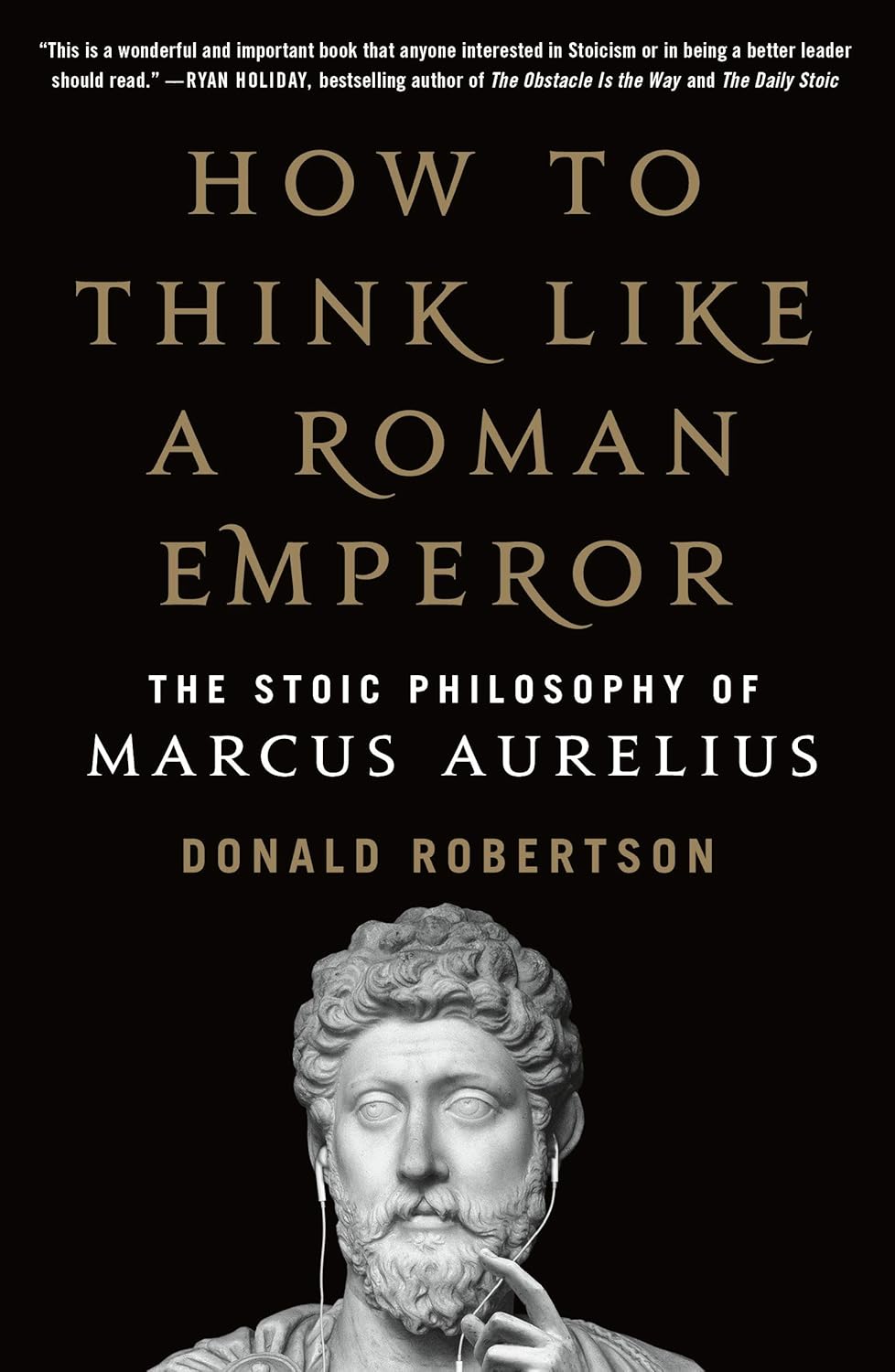About this deal
This chapter also contains powerful exercises which can help reflect your values, desires and admirations. When I was thirteen years old, my father died. He’d developed lung cancer in his fifties, which left him bedridden for a year before it finally killed him. He was a humble and decent man, who encouraged me to think more deeply about life.
For I go around doing nothing but persuading both young and old among you not to care for your body or your wealth in preference to or as strongly as for the best possible state of your soul, as I say to you: “Wealth does not bring about virtue, but virtue makes wealth and everything else good for men, both individually and collectively.”2Stoicism is about changing how you think and control your emotions, and this is what Robertson says is a premodern concept of the therapy strategy.
This is what makes How to Think Like a Roman Emperor by Donald Robertson an ideal introduction to the practice of Stoicism. It combines the theory of Stoicism—corroborated by the latest therapeutic techniques of modern psychology—with the biographical details of a Stoic master worth emulating, Marcus Aurelius.Stoicism is a practical philosophy that emphasizes rationality and virtue as the only true goods. Unlike other religious or spiritual practices, Stoicism does not require that you abandon reason or strain your grip on reality; rather, it provides an ethical orientation to life that is fully consistent with our nature as rational, social beings. Although Marcus first began training in philosophy when he was just a boy of about twelve, his practice intensified in his mid-twenties, when he dedicated himself wholeheartedly to becoming a Stoic. Since then he has rehearsed his Stoic exercises daily, trained his mind and body to obey reason, and progressively transformed himself, both as a man and a ruler, into something approaching the Stoic ideal. He has tried to develop his own wisdom and resilience systematically, modeling himself after the philosophers who shared their teachings with him and the other great men who won his admiration, foremost among them Antoninus. He studied the way they met different forms of adversity with calm dignity. He carefully observed how they lived in accord with reason and exhibited the cardinal virtues of wisdom, justice, fortitude, and temperance. They felt the pain of loss but did not succumb to it. Marcus has been bereaved so many times, has practiced his response to it so often, that he no longer weeps uncontrollably. He no longer cries “Why?” and “How could this happen?” or even entertains such thoughts. He has firmly grasped the truth that death is both a natural and inevitable part of life. Now that his time has come he welcomes it with a philosophical attitude. You might even say that he has learned to befriend death. He still sheds tears and mourns losses, but as a wise man does. He no longer adds to his natural grief by complaining and shaking his fist at the universe.
Related:
 Great Deal
Great Deal 